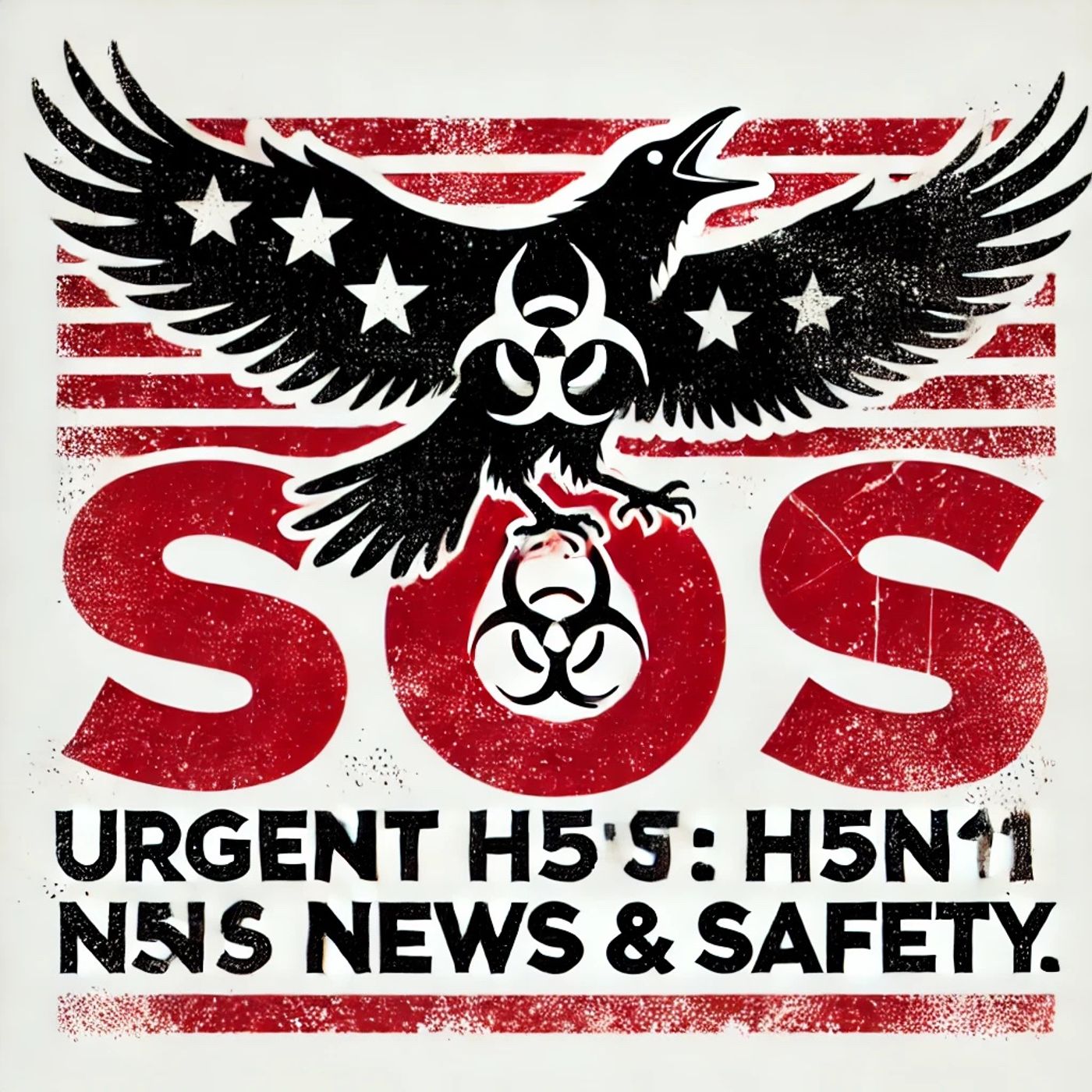Podcast Episode Details
Back to Podcast Episodes
Urgent H5N1 Bird Flu Outbreak Spreads Across California Dairy Farms Raising Concerns for Public Health
This is Bird Flu SOS: Urgent H5N1 News & Safety. Today is Friday, August 15, 2025, and we're breaking into your routine with the latest critical development on the global spread of H5N1 bird flu.
Here’s what’s happening: Today, California public health authorities announced a sudden resurgence of H5N1 avian flu in 43 dairy farms across the state—these are reinfections among herds previously declared clear. Immediate quarantines are now reinstated, signaling the most significant new cluster since the bird flu began spreading rapidly through livestock last year. At the same time, Cambodia has just reported its 15th human H5N1 infection for 2025, a 6-year-old girl, following a wave of animal deaths in her community. Globally, at least 26 human cases have been detected this year, resulting in 11 deaths, almost all from direct contact with sick poultry or livestock, according to the Centers for Disease Control and Prevention.
With us is Dr. Jason Lombard, lead author of a new review in the Journal of Dairy Science. He told us, “The H5N1 outbreak in U.S. dairy cattle is unlike anything we have seen before. The virus spreads easily between farms and among cows and has broad impacts we’re still trying to measure. This is the first infectious disease of this size in the U.S. dairy sector in close to a century.”
The CDC’s chief influenza officer emphasized this week, “While the public risk remains low, the situation is evolving due to ongoing animal outbreaks and rare but severe human infections. Our highest concern is for people working directly with poultry and livestock. Please remain vigilant and report symptoms promptly.”
For listeners in affected areas, here are crucial steps you must follow immediately:
- Avoid all contact with sick or dead poultry, wild birds, and livestock, especially if H5N1 has been reported in your area.
- Don’t allow children or pets near animals that are sick or have died suddenly.
- If you or someone you know works with poultry, dairy cows, or in animal processing, use protective clothing, masks, gloves, and strict hand hygiene protocols.
- If you see sudden animal deaths or suspect H5N1, contact your local animal health authority immediately. In California, call 1-866-922-2473 for rapid response guidance.
- Watch for sudden fevers, cough, difficulty breathing, or neurological symptoms like confusion after animal exposure—these require immediate medical attention.
If you need emergency health assistance, call your health provider, local emergency services, or visit the CDC or WHO bird flu resources online for up-to-date advisories.
It’s important to remember, as noted by the World Health Organization and CDC, that there is currently no evidence of person-to-person spread. Nearly all severe cases happen after direct contact with infected animals or contaminated environments. The risk to the general public is considered low, but for anyone in contact with potentially infected livestock or wild birds, absolute caution is essential.
This situation underscores how animal, human, and environmental health are deeply connected. A One Health approach—a coordinated effort across sectors—is vital to stop H5N1.
Thank you for tuning in to Bird Flu SOS: Urgent H5N1 News & Safety. Come back next week for the latest critical updates. This has been a Quiet Please production. For more, check out Quiet Please Dot A I. Stay safe.
For more http://www.quietplease.ai
Get the best deals https://amzn.to/3ODvOta
Published on 1 week, 1 day ago